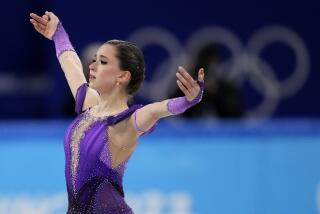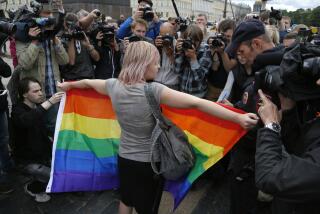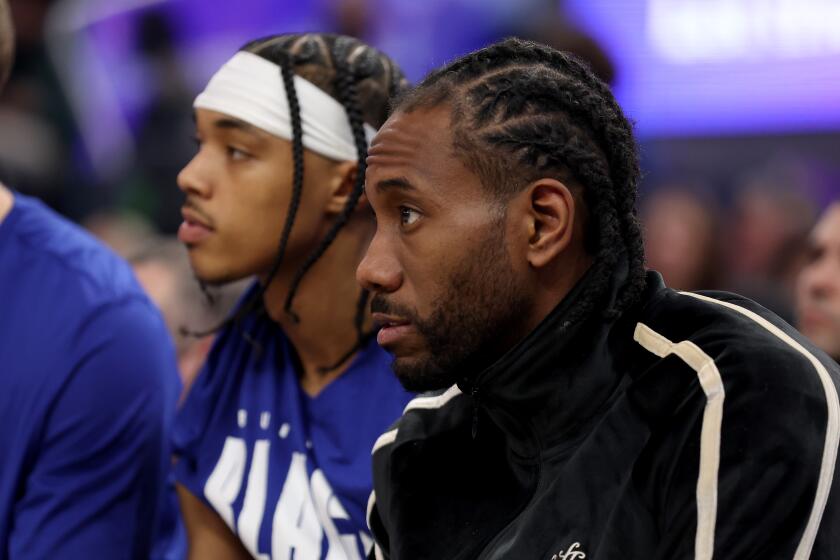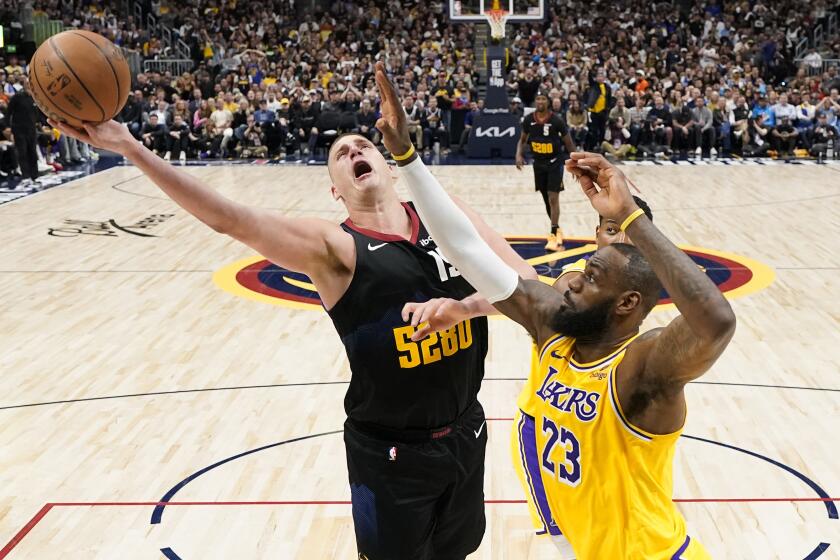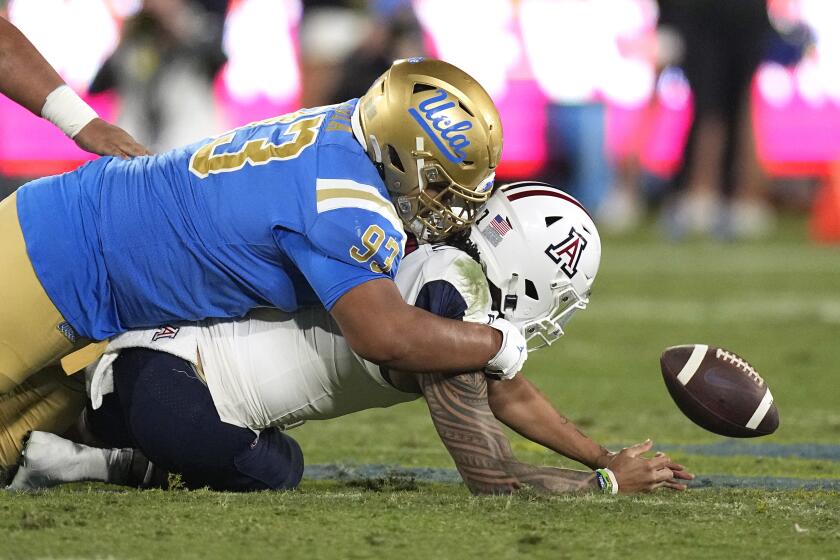Germany’s Thomas Bach elected IOC president
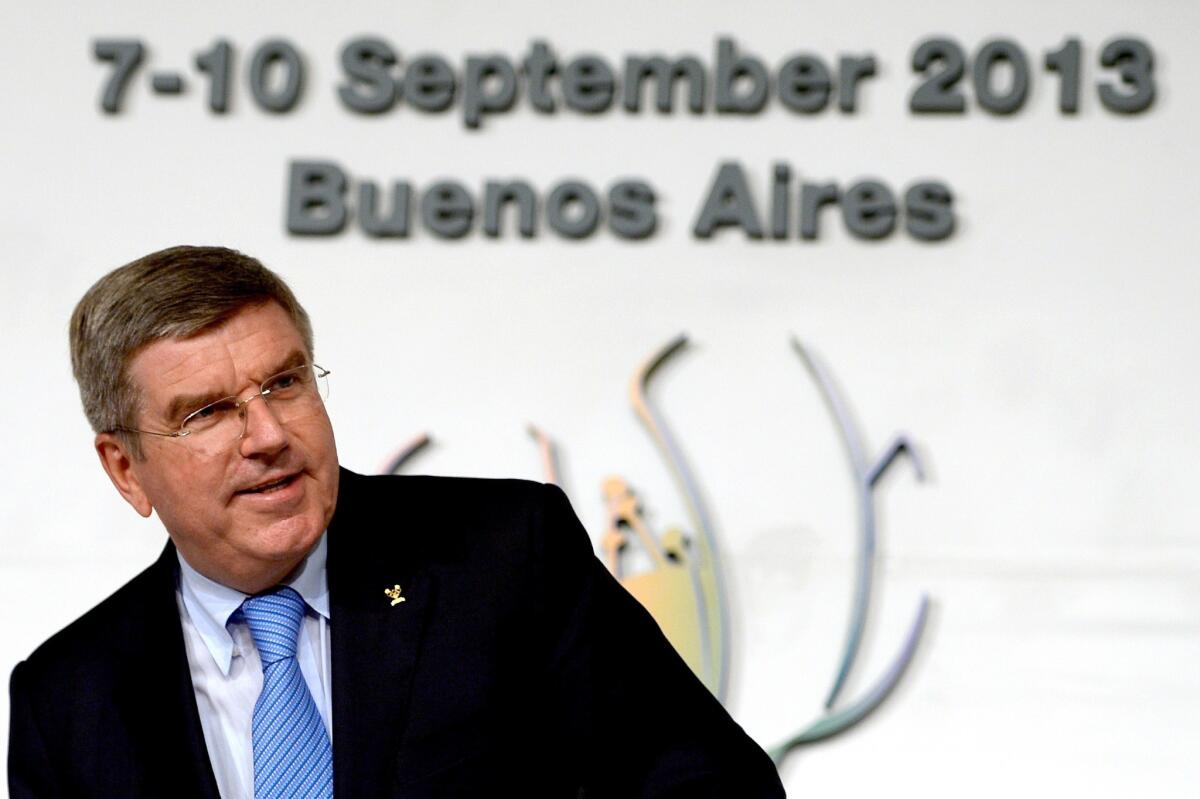
BUENOS AIRES — Thomas Bach was doing media interviews Tuesday when Dmitry Chernyshenko, head of the Sochi 2014 Winter Olympic organizing committee, interrupted to hand Bach a cellphone. On the line was Russian President Vladimir Putin, the first head of state to speak with Bach after the German had been elected the ninth president of the International Olympic Committee.
“We did not discuss the law,” Bach said, laughing, after his brief conversation with Putin.
But how the IOC deals with all the issues related to “the law,” Russia’s recent anti-gay legislation, is a serious challenge Bach immediately faces after becoming the eighth white European man in the IOC presidency.
The IOC has been slow to recognize the level of concern the Russian law has caused in many western nations. It also has not formulated a plan for dealing with any Sochi Olympian who chooses to make or wear a show of support for Russia’s LGBT community or gay rights that could be viewed as a violation of the Olympic charter.
Chernyshenko asked the IOC on Sunday to help end the controversy over the law and to “stop this campaign and speculation.”
Bach, a 59-year-old attorney and 1976 Olympic fencing champion, said this was not the time to discuss the details of how the IOC will handle such incidents, but he clearly sees the need to let athletes and their national Olympic committees know in advance what to expect.
“We will follow our values and the Olympic charter to make sure the Olympic Games and the participants in the Olympic Games can compete and participate without discrimination,” Bach said. “We have the clear assurances of the highest authorities in Russia, and we trust those assurances.
“The policy of the IOC in more detail will be worked out and communicated with the national Olympic Committee and the athletes.”
The Olympic charter prohibits discrimination on the basis of “race, religion, politics, gender or otherwise.” Rule 50 of the charter also bans demonstrations and “political, religious or racial propaganda” in Olympic sites or venues. Among potential penalties for violating the charter is being sent home from the Olympics.
The U.S. Olympic Committee is waiting for IOC guidance on the matter, although its chairman, Larry Probst, said Tuesday he may discuss the issue at an upcoming meeting with Bach.
“With regard to any demonstration or protest, that’s going to be an IOC call,” said Probst, elected as an IOC member Tuesday.
Anita DeFrantz, who won a place on the IOC executive board, said sending someone home for a gesture like wearing a rainbow pin “sounds like it’s going too far.”
IOC spokesman Mark Adams said athletes will not be prohibited from answering questions about gay rights at a news conference.
The vaguely worded Russian law prohibits “propaganda of non-traditional sexual relations” and calls for penalties that include arrest, fine and deportation.
“It’s a disgusting law, but when you are there, you are there as a guest,” IOC member Dick Pound of Canada said. “If I were the IOC, I would say, `You know the rule, there is to be nothing. If you violate it, you risk being disciplined.’’’
Pound said even a small pin could be seen as a violation. The Swedish Olympic Committee agreed when it warned its 2014 Olympians not to follow the example of the two Swedish women track and field athletes who showed their support for gay rights with rainbow fingernails at last month’s World Championships in Moscow. The international and Swedish track federations told the athletes not to have the rainbow nails while competing.
“The IOC has very clear rules on what you can do and not do,” said IOC executive board member Gunilla Lindberg of Sweden. “For me, nail polish is such a stupid thing to react on.’’
IOC member Prince Albert of Monaco said he would not send an athlete home for a small gesture and agreed that Rule 50 is “a little strict.”
“There has to be a rule at some point,” Prince Albert said. “It’s never going to be an easy issue. We have to find the best solution.”
To two of the losing candidates in Tuesday’s presidential election, Richard Carrion of Puerto Rico and Ching-Kuo Wu of Chinese Taipei, it is imperative the IOC tell all potential Olympic host cities they cannot have laws like Russia’s that, in Wu’s words, “contradict the Olympic charter.”
That message could apply to an American city wanting to host the 2024 Summer Games.
The fact that DeFrantz and Probst won elections Tuesday confirms that U.S. Olympic officials are succeeding in their quest to improve relations with the IOC.
A recent squabble over revenue sharing — which may have doomed bids by New York and Chicago — has been settled.
More to Read
Get our high school sports newsletter
Prep Rally is devoted to the SoCal high school sports experience, bringing you scores, stories and a behind-the-scenes look at what makes prep sports so popular.
You may occasionally receive promotional content from the Los Angeles Times.

